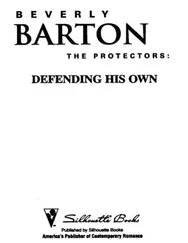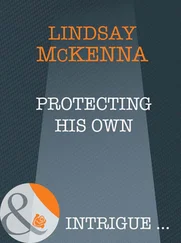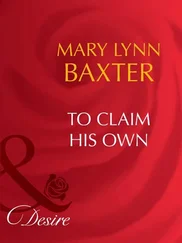Jonah Barrington - Personal Sketches of His Own Times, Vol. 2 (of 3)
Здесь есть возможность читать онлайн «Jonah Barrington - Personal Sketches of His Own Times, Vol. 2 (of 3)» — ознакомительный отрывок электронной книги совершенно бесплатно, а после прочтения отрывка купить полную версию. В некоторых случаях можно слушать аудио, скачать через торрент в формате fb2 и присутствует краткое содержание. Жанр: foreign_antique, foreign_prose, на английском языке. Описание произведения, (предисловие) а так же отзывы посетителей доступны на портале библиотеки ЛибКат.
- Название:Personal Sketches of His Own Times, Vol. 2 (of 3)
- Автор:
- Жанр:
- Год:неизвестен
- ISBN:нет данных
- Рейтинг книги:4 / 5. Голосов: 1
-
Избранное:Добавить в избранное
- Отзывы:
-
Ваша оценка:
- 80
- 1
- 2
- 3
- 4
- 5
Personal Sketches of His Own Times, Vol. 2 (of 3): краткое содержание, описание и аннотация
Предлагаем к чтению аннотацию, описание, краткое содержание или предисловие (зависит от того, что написал сам автор книги «Personal Sketches of His Own Times, Vol. 2 (of 3)»). Если вы не нашли необходимую информацию о книге — напишите в комментариях, мы постараемся отыскать её.
Personal Sketches of His Own Times, Vol. 2 (of 3) — читать онлайн ознакомительный отрывок
Ниже представлен текст книги, разбитый по страницам. Система сохранения места последней прочитанной страницы, позволяет с удобством читать онлайн бесплатно книгу «Personal Sketches of His Own Times, Vol. 2 (of 3)», без необходимости каждый раз заново искать на чём Вы остановились. Поставьте закладку, и сможете в любой момент перейти на страницу, на которой закончили чтение.
Интервал:
Закладка:
On their arrival in the presence of the doctor, who pretended never to know any body in Court, he asked, “Who those people were?” and on being informed, proceeded to inquire what business brought them there.
The Honourable Benjamin answered, “that he wanted a marriage-license for his nephew, George Hartpole, of Shrewl Castle, Esq., and Miss Maria Otway, of Castle Otway, County Tipperary.”
He had scarcely pronounced the words when the doctor, rising, with the utmost vehemence roared out, “George Hartpole! George Hartpole! is that the rascal who has another wife living?”
George, struck motionless, shrank within himself; but Benjamin, not being so easily frightened, said something equally warm, whereupon the doctor, without further ceremony, rushed at him, seized him by the collar, and cried, “Do you want me to countenance bigamy, you villains?” at the same time roaring to his crier and servants to “turn the fellows out!” which order, if not literally, was virtually performed, and the petitioners for a license congratulated themselves upon their providential escape from so outrageous a judge of prerogative.
The fact was, a suit of nullity had been actually commenced in the Court, but its merits never having been stated, the judge only knew Hartpole as a married man de facto , and it certainly could not appear very correct of the Honourable Benjamin to apply to the same judge who was to try the validity of the first marriage, to grant his license for the solemnization of a second while the first remained undecided. On Hartpole’s mind the circumstance made an indelible impression, and he never afterward took any further proceedings in the cause then instituted.
Hartpole returned to me and recounted the adventure, affecting to treat it as a jest against his uncle. But it was a vain disguise; although, by struggling sharply with his feelings, he in some degree overcame them.
But what was now to be done, since no license could be obtained in Dublin? A general consultation was held; Mr. Otway (still singularly to me) appeared to regard the circumstance as a mere bagatelle . I thought far otherwise ; and it was so deeply engraven on Hartpole’s mind, that he mentioned it to me not three days previous to his dissolution, as having foreboded all his subsequent misfortunes.
It was at length agreed on that he should be married in the diocese of Kildare, by a license from the bishop’s surrogate there. This was in effect accomplished. I did not attend at the ceremony; after which, the parties pursued their journey to Castle Otway, where, in the midst of every thing that was desirable on earth, Hartpole commenced the trial of his new connexion.
In spite of these apparent advantages, however, my friend soon began either to find or conjure up new and dangerous sources of uneasiness. He continued some months at Castle Otway, listless and devoured by ennui – pining for a change of scene, and longing to return to his hereditary domain. His health gradually, although slowly, declined; yet he took no medical advice: remote symptoms of consumption began to exhibit themselves, and the effects of care upon a constitution naturally irritable favoured their development. But, amidst all this, he fancied for awhile that he possessed every thing he could wish for; – his wife daily improved in her person, her manners were delightful, her conduct unexceptionable.
Maria was adored by her parents, but adored to a degree that tended eventually to create her misery: the thought of separating from them was to her almost unbearable; she durst scarcely look at such an event with firmness. Her reluctance could not be concealed from the sharp eye of her uneasy husband. Every mark of affection lavished by her on her parents he considered as if filched from him. He thought her heart should have no room for any attachments but to himself, whereas it had been wholly preoccupied by filial tenderness, that true passion of nature. In a word, she had never loved Hartpole, for whom she felt no other than a neutral species of attachment. Neither her mind nor her person had arrived at their full maturity, when she was called upon to love; and under such circumstances, she really evinced more affection for her husband than I supposed she would do, but far less than he expected.
At length it was agreed that they should come, on a visit, to my house in Dublin for some time, and that her mother should afterwards stay with her at Shrewl Castle till Maria was gradually reconciled to the dreaded change, and to final residence with a man whom I believe she early discovered was not exactly calculated to make her happy. The story of Mary Sleven, I believe, she had not heard; if she had, I am pretty sure she never would have left the protection of her father.
When Hartpole arrived at my house, I soon perceived that my gloomy auguries had been too well grounded. I found his mind bewildered; he received no enjoyment from reading; his health did not permit strong exercise; he took no pleasure in new and strange society; but, on the contrary, pined for his own home, his free associates, his steward, his tenants, his colliers, and above all, for a passive, fond companion who should have no wish but her husband’s.
Now, none of these things were to Maria’s taste, and she yielded to the inroads of discontent, as I think, unreasonably: still, this feeling never showed itself with offensive prominence. She gave way to every desire expressed by her husband, but her acquiescence seemed to me like that of a victim . I have often noticed that, even whilst she intimated her obedience, her averted eye betrayed a rebel tear, and she only awaited the moment when it might gush out with safety, and relieve her.
I perceived that, unless some step was taken to occupy George’s mind, a residence at Shrewl Castle would surely proclaim to the world both his folly and his ruin. I therefore applied to Mr. Pelham, then secretary in Ireland, to appoint Hartpole to the office of high sheriff for Queen’s County for the ensuing year, 1794. My application was immediately conceded. I also took out for him a commission of the peace. Meanwhile his old castle was in part newly furnished, and I was happy to see that he felt a sort of gratification in the appointment of sheriff; and though in a state of health badly calculated to execute the duties of such an office, the occupation of his mind would, I hoped, make ample amends for his necessary personal exertions. If that year had passed favourably, it was my intention to have recommended a tour to some foreign country, where change of climate and of scene might tend to restore my friend’s health, to amuse his mind, and perhaps to make a desirable alteration in the feelings both of himself and his wife: – but Heaven decreed otherwise.
While on their visit at my house, I perceived, in Hartpole’s disposition, among other traits which so close a communion could scarcely fail to develope, one which I had never before suspected in him, and calculated to prove the certain and permanent source of unhappiness. Jealousy is of all others the most terrible of human passions. When once it fixes its roots in a hasty, sanguine nature, it becomes master of every action and every word; and reason, justice, and humanity, all fly before it! When it pervades a less ardent spirit, impetuosity is bridled; but the desire of revenge is no less powerful, and too often seeks gratification in the exercise of cold treachery or petty annoyance: in either case, the eye magnifies every object which can at all feed the greediness of suspicion. When this passion has any fair cause, it may be justifiable, and a crisis generally ends it; but when no cause exists, save in the distempered fancy of a sinking constitution, it is permanent and invincible.
Читать дальшеИнтервал:
Закладка:
Похожие книги на «Personal Sketches of His Own Times, Vol. 2 (of 3)»
Представляем Вашему вниманию похожие книги на «Personal Sketches of His Own Times, Vol. 2 (of 3)» списком для выбора. Мы отобрали схожую по названию и смыслу литературу в надежде предоставить читателям больше вариантов отыскать новые, интересные, ещё непрочитанные произведения.
Обсуждение, отзывы о книге «Personal Sketches of His Own Times, Vol. 2 (of 3)» и просто собственные мнения читателей. Оставьте ваши комментарии, напишите, что Вы думаете о произведении, его смысле или главных героях. Укажите что конкретно понравилось, а что нет, и почему Вы так считаете.












